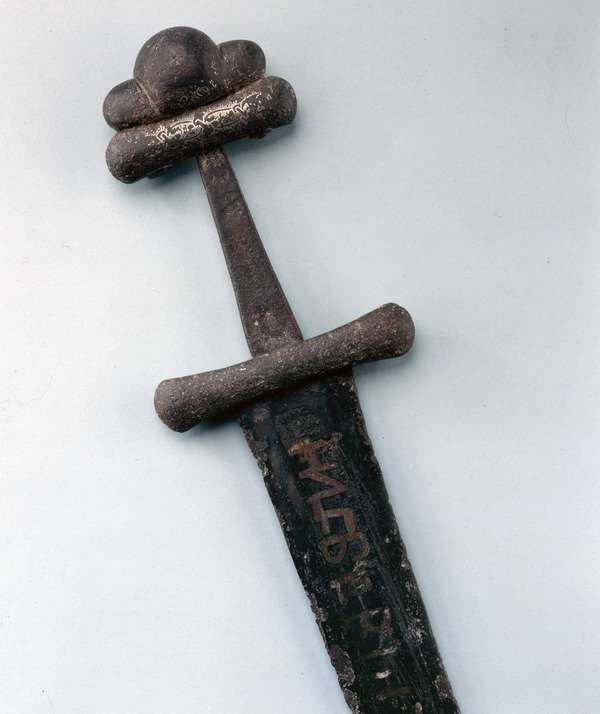The Vikings
dal 9/9/2014 al 3/1/2015
Segnalato da
9/9/2014
The Vikings
Martin Gropius Bau, Berlin
The centrepiece of the exhibition is formed by the wreck of the largest Viking ship ever found - the Roskilde 6. On view in the atrium of the Martin Gropius-Bau, the Roskilde 6 takes visitors on a voyage into the world of the Vikings: out into the vast raging sea and off to distant shores.

Our image of the Vikings continues to be shaped by stories of fearsome
warriors and conquerors, well-travelled seafarers, merchants, peasants,
and highly specialized craftsmen. It has been twenty years since the last
major international exhibition on the culture of the Vikings went on show in
Berlin. A team of researchers from the National Museum of Denmark, the
British Museum, and the Staatliche Museen zu Berlin have now joined
forces to present to the general public famous old archaeological finds
and scores of sensational new ones.
The centrepiece of the exhibition is formed by the wreck of the largest Vi-
king ship ever found – the Roskilde 6. The longship, a staggering 37 me-
tres in length, was discovered in the harbour of the Danish town of Roskil-
de in 1997 and is now going on public display for the first time. On view in
the atrium of the Martin-Gropius-Bau, the Roskilde 6 takes visitors on a
voyage into the world of the Vikings: out into the vast raging sea and off to
distant shores.
The thematic strands
The Roskilde 6 unites the exhibition’s four themes: ‘Contacts and Ex-
change’, ‘War and Conquest’, ‘Power and Dominion’, and ‘Faith and Ritu-
al’. At no other period in Scandinavian history were ships, seafaring, and
society so closely intertwined as in the Viking age.
The thematic strand Contacts and Exchange focuses on maritime cul-
ture. Thanks to their skills as shipbuilders and seafarers, the Vikings were
able to build up a network linking three continents and enabling the traffic,
not only of goods, but also of cultural ideas. The combination of raiding,
trading, conquest, and settlement brought the Vikings into contact with
foreign civilizations. Economic exchange developed as a result, but so too
did social integration on many levels.
The theme of War and Conquest connects to the Roskilde 6’s role as a
warship. Warriors banded together to form ships’ crews for shared raiding
expeditions, known as ‘viking’, plundering coastlines and conquering
whole swathes of territory.
By her sheer size, the Roskilde 6 epitomises the theme of Power and
Dominion. Not only is she the longest Viking ship so far discovered by
archaeologists, but her dimensions and construction type show that she
belonged to the finest class of boats described in the historical records.
Since building a vessel of this type required considerable resources, it is
likely that she was a royal commission. ‘Power and Dominion’ also illumi-
nates the way of life of the kings and rulers of the Viking period.
The theme of Faith and Ritual establishes yet more connections with the
Roskilde 6. In Viking times, boats and ships were intimately connected
with the journey to the afterlife, for instance in the form of ship burials.
‘Faith and Ritual’ affords glimpses into the world of Viking belief, a world
peopled by gods, giants, dwarves, and other supernatural beings.
Unlike many books and previous exhibitions devoted to the Vikings, this
exhibition does not set out to give a complete overview of every aspect of
the Viking period. Instead, its four themes focus on the important archaeo-
logical discoveries of recent years and on new interpretations of old finds.
For instance, the largest hoard of Viking treasure ever found, the Vale of
York Hoard, is going on public view for the first time in Germany. In all,
some 800 exhibits spread over a space of 2400 m2 invite the viewer to
delve into the world of the Vikings.
Accompanying events
The exhibition is accompanied by an extensive education and outreach
programme, with a particular focus on activities for children and families.
The education and outreach programme for the exhibition is generously
supported by Vattenfall Europe Wärme AG.
Throughout the entire duration of the exhibition, craftsmen will reconstruct
a Viking longship in Martin-Gropius-Bau, using techniques originally em-
ployed by the Vikings themselves. The action is being funded by the Dan-
ish Krak Foundation and the Royal Danish Embassy. However, it is not
only inside the museum that Viking vessels can be seen. Coinciding with
the exhibition, the largest faithful replica of a Viking vessel, the Havhing-
sten fra Glendalough (Sea Stallion of Glendalough), has sailed from
Denmark to Berlin. The Sea Stallion has weighed anchor at Schiffbau-
erdamm 19 and is open to visitors until 14 September. The voyage of the
ship and its sixty-man crew is an initiative of the Royal Danish Embassy
and the Viking Ship Museum in Roskilde, and has been generously sup-
ported by the Krak Foundation.
Exhibtion catalogue
Hirmer Verlag, Nymphenburger Strasse 84, 80636 Munich
ISBN 978-3-7774-2232-9
Eva-Maria Neuburger, Head of Press and PR
T +49 (0) 89 12 15 16 - 63, F +49 (0) 89 12 15 16 - 16
neuburger@hirmerverlag.de
Presented by the Staatliche Museen zu Berlin’s Museum of Prehistory
and Early History, in cooperation with the National Museum of Denmark,
Copenhagen, and the British Museum, London.
The exhibition in Berlin is generously supported by the Kuratorium Muse-
umsinsel.
Media partners:
Der Tagesspiegel, Kulturradio – RBB, National Geographic
Image: Ulfberht-Schwert, 10. Jh. n. Chr., Eisen mit Silbereinlage. Schwedt, Brandenburg. Foto: Staatlichen Museen zu Berlin, Museum für Vor- und Frühgeschichte
ANNE SCHÄFER-JUNKER
PRESS
Phone: +49 30 266-42 34 02
Fax:
+49 30 266-42 34 09
presse@smb.spk-berlin.de
www.smb.museum/presse
Martin-Gropius-Bau
Niederkirchnerstrasse 7, 10963 Berlin
Opening times: Wed–Mon 10 a.m. to 7 p.m.; Tue closed



